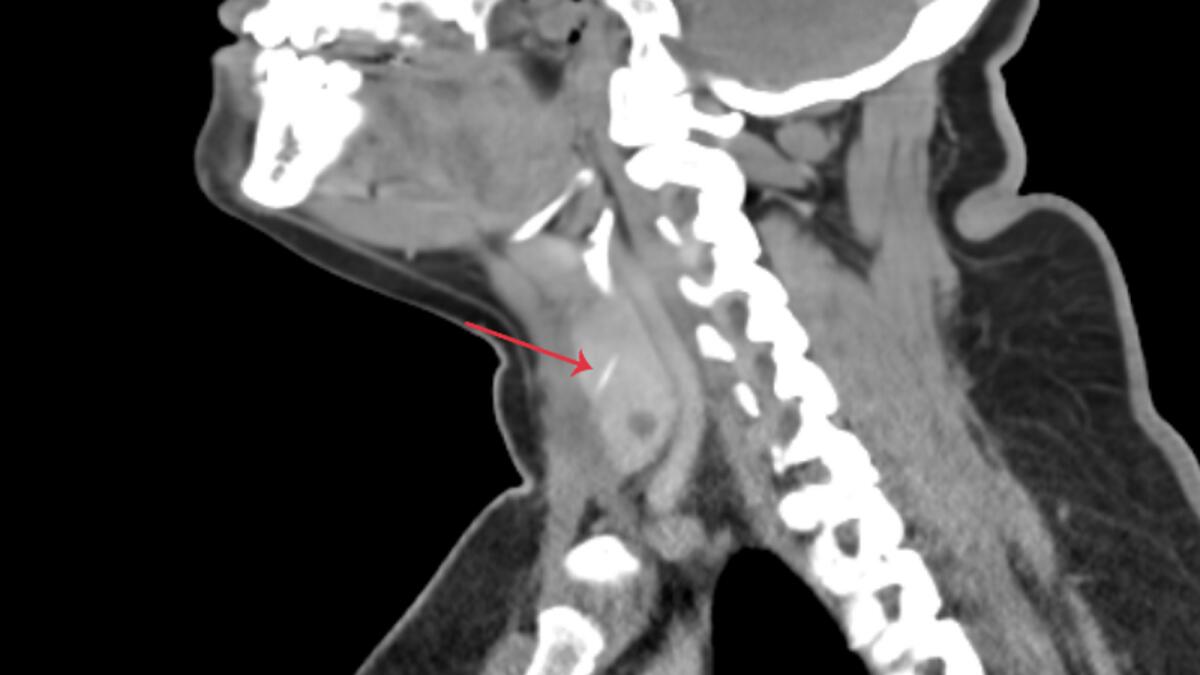A 48-year-old Dubai resident experienced a fishbone stuck in her throat while on vacation, which eventually moved down and became lodged in her thyroid gland. The presence of the bone posed life-threatening risks, prompting the woman to seek emergency medical attention. The bone, measuring 3cm in length, was successfully removed through surgery by a team of doctors at Aster Hospital Mankhool.
Dr. Deepak Janardhan, an E.N.T, Head & Neck Surgery Specialist at the hospital, expressed concerns about possible complications during the procedure, as any remaining bone in the thyroid gland could lead to further complications. Fortunately, the bone was removed intact, with no additional issues. The patient initially tried home remedies before seeking medical attention due to neck pain a week after the incident.
Following a sonogram at a local clinic that identified a suspicious linear object in her throat, the patient was referred to Aster Hospital Mankhool for specialized care. A CT scan confirmed the presence of the fishbone embedded in her thyroid lobe, leading to surgical intervention under general anesthesia to remove the bone and ensure proper wound closure. Dr. Bharath Rao, an E.N.T, Endoscopic Nasal & Micro Ear Surgery Specialist, highlighted the importance of seeking medical attention for persistent symptoms after ingesting foreign objects.
While fishbones getting lodged in the throat is common among seafood consumers, it is rare for a bone to migrate to the thyroid gland, as seen in this case. Dr. Deepak emphasized the potential for serious complications if fishbones are not promptly addressed and advised caution when consuming fish with bones. He also highlighted the rare chances of fishbones penetrating soft tissues, the spine, or major blood vessels, stressing the importance of consulting a doctor if symptoms persist for multiple days.
The removal of the fishbone from the patient’s thyroid gland was a rare medical occurrence, according to Dr. Deepak, who had not encountered a similar case before. He underscored the importance of timely medical intervention for foreign body ingestion, as complications could arise if symptoms persist. Dr. Deepak also mentioned the possibility of fishbones causing infections, although statistically rare, and urged individuals to seek medical attention if pain persists for an extended period.
In conclusion, the case of a fishbone becoming lodged in a woman’s thyroid gland highlights the potential hazards of foreign body ingestion and the importance of seeking immediate medical attention for persistent symptoms. The successful surgical removal of the bone by a team of healthcare professionals at Aster Hospital Mankhool underscores the critical role of specialized care in managing such incidents. This rare occurrence serves as a reminder to exercise caution when consuming foods with bones and to prioritize health and safety in all aspects of daily life.











